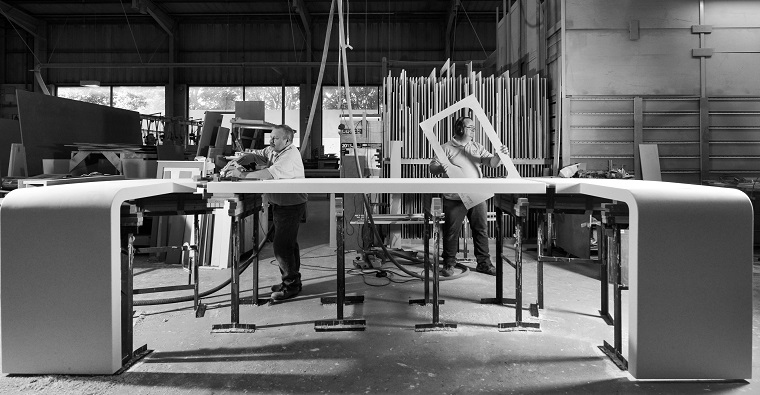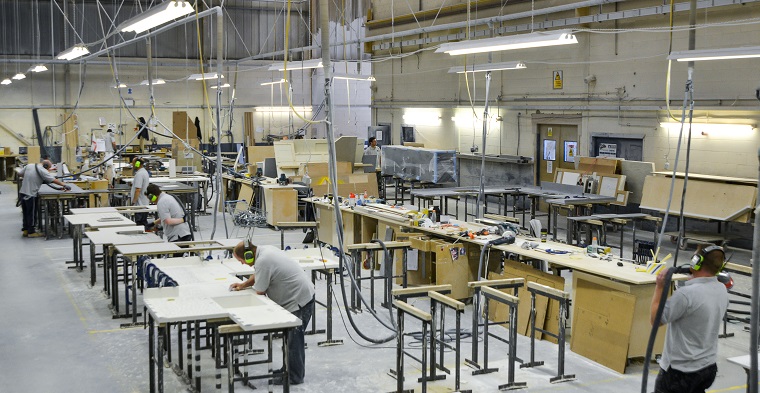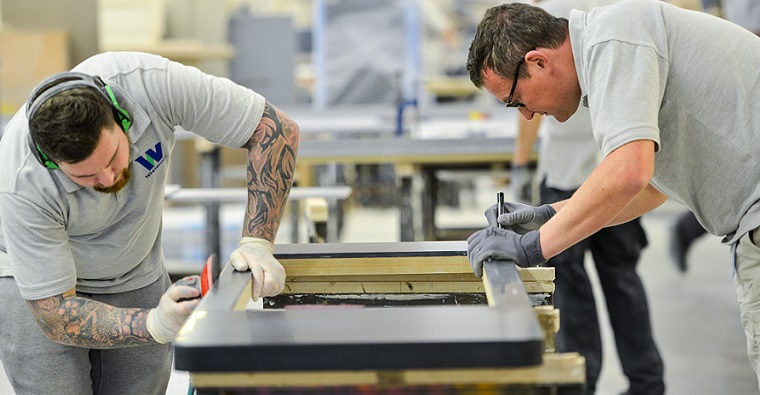
8 Questions to ask your Corian® fabricator
Posted by Whitehall on 31st MayAsk your Corian® fabricator these questions to make sure you’re in good hands
Have you ever worked with a company that wowed you at first, only to lose confidence down the line?
Maybe it started with a missed deadline or a few unanswered emails. Perhaps the plans were less than detailed or parts of the project were skimmed over. Did you stick with it and give them the benefit of the doubt, only to be disappointed with the results?
Almost everyone has been stung by a supplier in this way. And it’s not surprising, as so many companies are good at hiding their weaknesses until it’s too late. But, it is possible to find a company that won’t let you down. It just takes research and asking the right questions…
Choosing a Corian® fabricator
The advantage of selecting a Corian® fabricator is that there are a select number of certified suppliers to choose from in the UK, making things easier. It’s worth remembering that Corian® fabrication is a specialism and an expert should be able to answer your questions in detail.
So, what questions should you start by asking?
Q1: Are you a certified DuPont Corian® fabricator?
All certified DuPont Corian® fabricators are part of the DuPont Quality Network. Membership to the DuPont Corian® Quality Network means:
- Fabrication skills are regularly tested and monitored by DuPont technicians
- Expert training is provided to consistently deliver the highest quality products
As leaders in their field, DuPont Corian® make sure their product is only ever used to premium standards. They carefully select industrial partners who they trust to manage the properties of their product effectively.
Q2: Can you also install my Corian® surface?
You may already have fitters for your work surfaces. But it’s always useful to ask whether your Corian® fabricator can install too. It’s the sign of an expert fabricator if they can work to your timescales to template, build, deliver and fit your surfaces.

Q3: Where and how do you fabricate the surfaces?
This is one of the most important questions to ask as it separates the fitters from the expert Corian® fabricators. To retain its strength, Corian® should be cut, thermoformed, sanded and joined using industrial machinery and specific processes within a factory environment.
Manually sawing, sanding or joining sheets of Corian® without the correct materials will produce substandard surfaces. Aside from having a shorter lifespan, these surfaces will be outside DuPont’s warranty as manual fabrication processes don’t meet with Quality Network standards.
To find out more about the different stages of Corian® fabrication, check out our blog ‘Solid surface fabrication hacks – in action’ and see some of the processes caught on camera.
Q4: How long have you been working with Corian®?
The longer a fabricator has worked with a material, the more skill and experience they have under their belts. This is more than true for the team here at Whitehall. We’ve been fabricating Corian® for over 30 years, as well as being DuPont Corian®’s first ever UK Quality Network members!
Q5: What’s your templating process?
In order to get a Corian® surface exactly right first time, there should be time dedicated to the templating phase. This involves taking a detailed look at your plans and gathering accurate measurements. Because most of a Corian® work surface is built within the warehouse, the initial template needs to be spot on to ensure a streamlined installation.

Q6: How long should the process take?
This depends on the size of the job and capacity of the Corian® fabricators. But a reasonable estimation would be around two to three weeks from quotation to installation. The more information you have (i.e. plans, measurements and colour choices), the faster the process will move.
Q7: Are there certain colours I should avoid or consider for particular applications?
Although Corian® is non-porous and stain-resistant, there are some colours that are more likely to show hard stains. These colours should be avoided in certain situations, say in a professional kitchen or laboratory setting, where they are subject to more wear and tear. This is the kind of information a professional Corian® fabricator is able to tell you at the point of quotation.
Q8: What kind of warranty do you provide?
DuPont Corian® provide a manufacturer’s warranty of 10 years for all surfaces installed by certified fabricators. As we mentioned in Q3, any surface installed by a non-certified Corian® installer will be exempt from this warranty, as the installation methods fall outside of the standards set by DuPont.
We hope this has provided you with some useful inspiration. If you’d like any more worktop design advice, you can talk to our experts.
Back to blog


